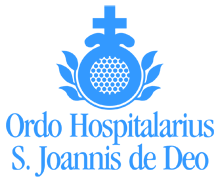
Ordo Hospitalarius S. Ioannis de Deo
Via della Nocetta, 263
00164 Roma (RM)
Tel.+39 06 6604981
Tel.+39 06 6637102
info@ohsjd.org
Yet another project promoted with the collaboration of the Hospitality Europe office was financed in the summer months under the Erasmus+ call for strategic partnership education projects, entitled, “Transdisciplinary project based on Building Experiencies on WATER through an educational and inclusive approach for students with intellectual disabilities” – BE WATER).
The partnership will cover two years (2019-2021) with European Union funding of EUR194,478.
The purpose of the project is to promote a system of transdisciplinary education other than in the traditional classroom – namely, in a water environment (swimming pool) - improving the learning abilities of young people with intellectual disabilities while at the same time helping them to become more independent and improving their quality of life.
This type of educational programme has already been implemented over several years in the Centre of the Hospitaller Order (Fundación Instituto San José) which will be coordinating the BE WATER project. That experience has shown that alternating between the classroom and the swimming pool to educate these young people with disabilities not only improves their learning skills but also enhances their psycho-physical well-being during and after their school work.
The following Institutes will be taking part in the project activities: Fondazione Istituto San José (Madrid), Saint John of God Services (Dublin) and the Institute of the Sisters Hospitallers (Funchal).
A total of 70 young people aged between 3 and 21 with intellectual disabilities will take part in the project in addition to the teaching and social care personnel of the 3 participating institutes. The parties will draft a manual for educators, and protocols for schools and care centres wishing to try out this innovative learning methodology in a water environment.
Videos and computer applications will also be created to make the project more widely known and to facilitate the dissemination of the materials generated by it.
 The BE WATER project has been funded with
support from the European Commission.
The BE WATER project has been funded with
support from the European Commission.
This publication reflects the views only of the author, and the Commission cannot be held responsible for any use which may be made of the information contained therein.